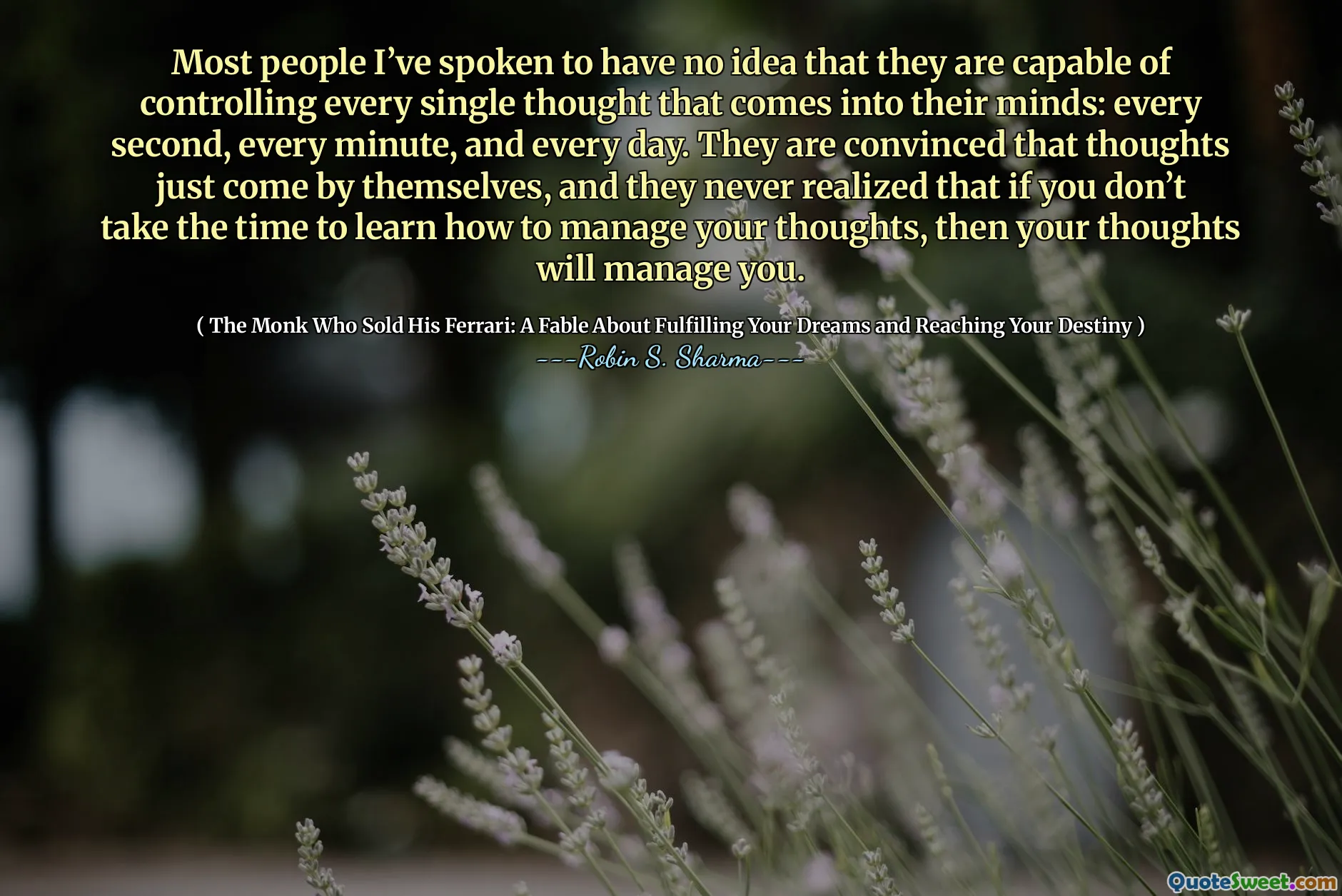
Most people I’ve spoken to have no idea that they are capable of controlling every single thought that comes into their minds: every second, every minute, and every day. They are convinced that thoughts just come by themselves, and they never realized that if you don’t take the time to learn how to manage your thoughts, then your thoughts will manage you.
This quote from Robin S. Sharma's "The Monk Who Sold His Ferrari" highlights a profound yet often overlooked truth about the nature of our mind and our control over it. It challenges the common misconception that thoughts are random, uncontrollable occurrences, suggesting instead that each individual holds the power to consciously direct their mental landscape. This idea is empowering because it places responsibility and agency back into our hands, encouraging a more mindful and deliberate approach to our thinking patterns.
The notion that if we don't learn to manage our thoughts, they will manage us, is particularly striking. It reminds us that unchecked negative or chaotic thought processes can dominate our consciousness and, consequently, influence our decisions, moods, and overall life experience. The brain is often compared to a garden, and our mind to the soil; without intentional cultivation—removing weeds (negative thoughts) and planting seeds of positivity and intention—our inner world can become overrun with anything that takes root.
This reflects a fundamental theme in the book regarding personal growth and fulfillment: the journey to self-mastery begins with mastering one's own thoughts. Just as a monk commits to disciplined practices of mindfulness and reflection, we too must dedicate time and energy to the art of maintaining mental clarity and control.
In our fast-paced lives, where distractions are constant and stress abundant, the message urges us to pause and recognize the power of thought management. Cultivating this skill can lead to greater peace, resilience, and happiness, ultimately assisting us in fulfilling our dreams and reaching our destiny, as Sharma poetically proposes.







